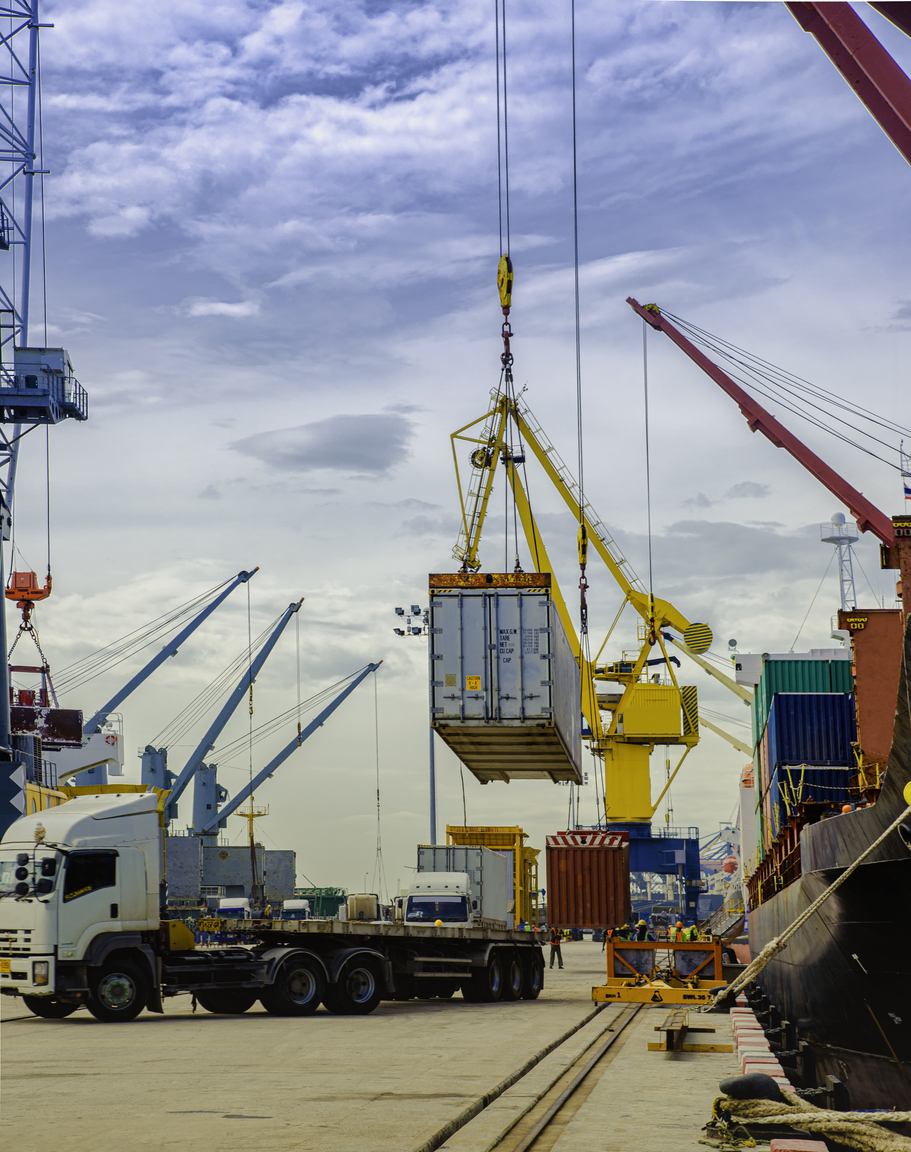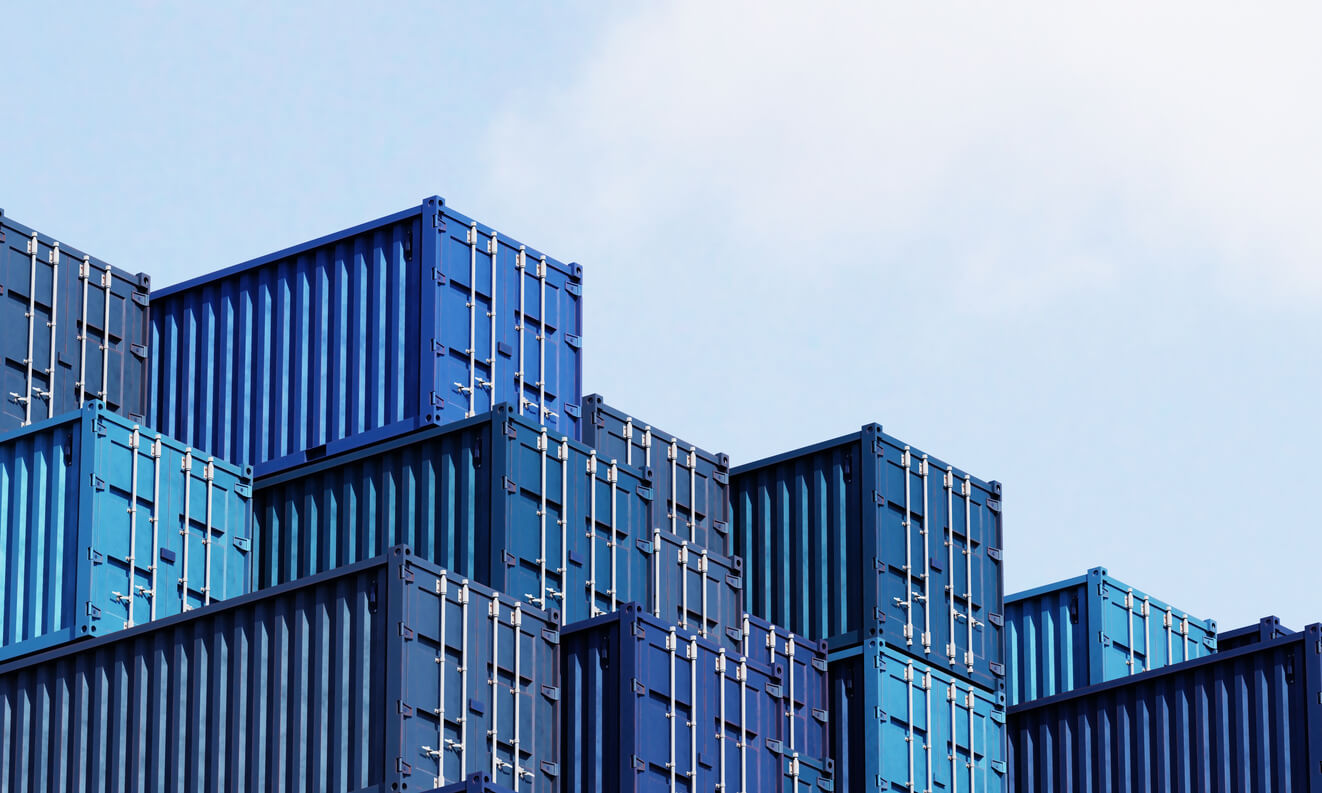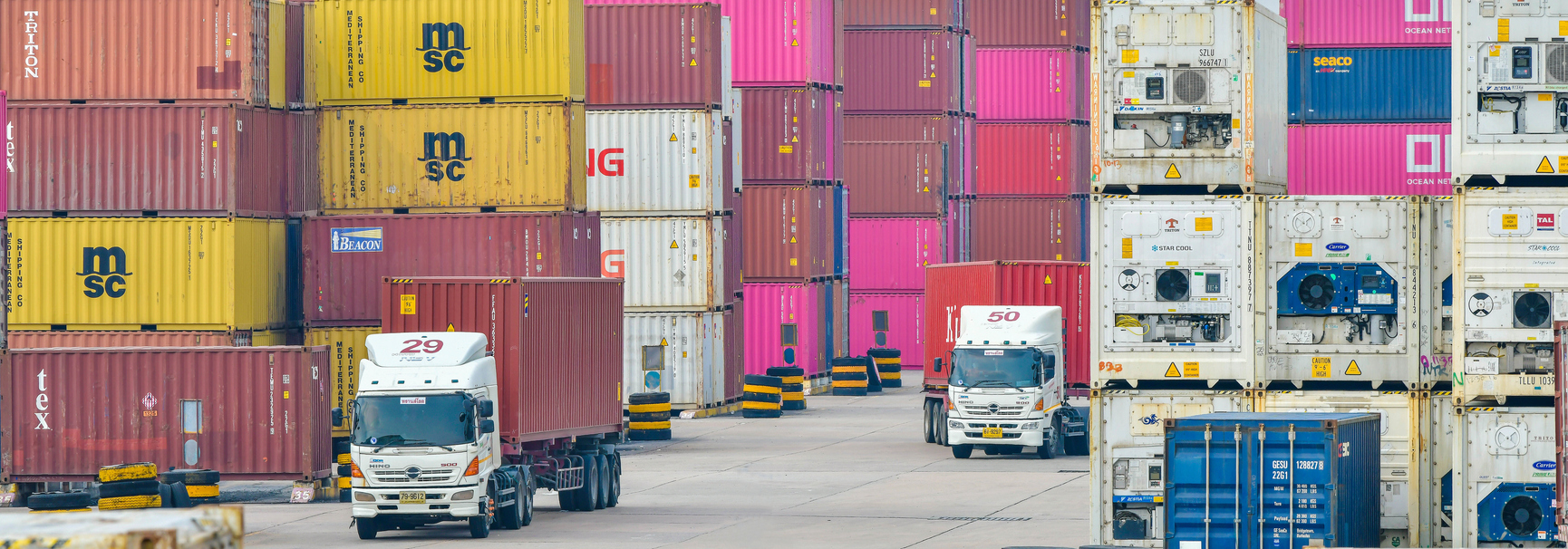How to Book a 20 Foot Container with Grimaldi (Napoli) and Other Major Shipping Lines
How to Book a 20 Foot Container with Grimaldi (Napoli) and Other Major Shipping Lines
Are you ready to take your shipping game to the next level? If you’re looking to book a 20-foot container with major shipping lines like Grimaldi (Napoli), then you’ve come to the right place. In this blog post, we’ll walk you through the process step by step so that you can ship your goods with ease and confidence. Say goodbye to complicated booking procedures and hello to smooth sailing with Grimaldi and other top shipping companies. Let’s dive in!
Introduction to container shipping and the benefits of booking with major shipping lines
Introduction to Container Shipping:
Container shipping is a vital component of global trade and commerce. It involves the transportation of goods in large, standardized containers on ships, making it an efficient and cost-effective means of international freight transport. In recent years, container shipping has become increasingly popular due to its many benefits, including convenience, security, and reliability.
Benefits of Booking with Major Shipping Lines:
When it comes to booking a foot container for your shipment, there are numerous options available in the market. However, it is always recommended to book with major shipping lines such as Grimaldi (Napoli) because of the various advantages they offer.
1. Global Network:
One of the primary benefits of booking with major shipping lines is their extensive global network. These companies have a vast fleet of vessels that operate on all major trade routes worldwide. This allows them to provide comprehensive coverage and reach even the most remote destinations efficiently.
2. State-of-the-Art Equipment:
Major shipping lines invest heavily in state-of-the-art equipment for loading, unloading, and transporting containers. They use modern cranes and handling equipment at ports which ensures that your cargo is handled safely and efficiently throughout its journey.
3. Reliability:
Another significant advantage of booking with major shipping lines is their reputation for reliability. These companies have strict schedules and adhere to them diligently, ensuring timely delivery of your goods without any delays or disruptions.
4. Competitive Pricing:
Contrary to popular belief, booking with major shipping lines does not necessarily mean higher costs. In fact, these companies often offer competitive pricing due to their high volume shipments and strong bargaining power with suppliers.
5. Variety of Services:
Major shipping lines offer a wide range of services besides just container transportations such as door-to-door delivery options, customs clearance assistance, warehousing facilities etc., making them a one-stop solution for all your logistic needs.
6.Professional Expertise:
Booking with reputable shipping lines also means that your shipment is being handled by experienced and knowledgeable professionals. These companies have a team of experts who are well-versed in international trade regulations, customs requirements, and logistics operations. They can provide valuable guidance and support throughout the entire shipping process.
Conclusion:
There are numerous benefits to booking with major shipping lines for your foot container needs. Their global network, modern equipment, reliability, competitive pricing, variety of services and professional expertise make them a preferred choice for businesses and individuals alike. By choosing a reputable shipping line like Grimaldi (Napoli), you can rest assured that your cargo will be transported safely and efficiently to its destination.
Understanding the different types of containers and their sizes
When it comes to booking a foot container with Grimaldi (Napoli) or any other major shipping line, one of the most important things to consider is the type and size of container you will need for your shipment. Understanding the different types of containers and their sizes is crucial in ensuring that your goods are transported safely and efficiently.
There are several types of containers commonly used in international shipping, each designed for specific purposes. The most common types include dry containers, refrigerated containers, open-top containers, flat rack containers, and tank containers. Dry containers are the standard option for general cargo such as clothing, electronics, and machinery. Refrigerated containers, also known as reefer containers, are equipped with temperature control systems and used for perishable or temperature-sensitive goods like fruits, vegetables, and pharmaceuticals.
Open-top containers have removable roofs to accommodate oversized or tall cargo that cannot fit into a regular container. Flat rack containers have collapsible sides which make them suitable for irregularly shaped or large cargos like vehicles or machinery. Tankers on the other hand are specialized units designed specifically for liquid or gaseous cargoes such as oil or chemicals.
Apart from the type of container needed for your shipment, it is also essential to understand the different sizes available. Standard ISO shipping containers come in two main sizes: 20-foot and 40-foot long units. The 20-foot container has an internal volume of about 1,170 cubic feet while the 40-foot unit has twice as much space at around 2,350 cubic feet.
For smaller shipments that do not require a full container load (FCL), there are also options like less-than-container-load (LCL) services where multiple consignments from various customers are consolidated into one container before being shipped out. This can be a cost-effective solution for small businesses or individuals who do not have enough goods to fill an entire container.
It is crucial to choose the right size and type of container based on the volume and nature of your cargo. Overloading a container or using the wrong type can result in delays, damages, or even safety hazards during transportation. It is always recommended to consult with a shipping expert or the chosen carrier to determine the most suitable container for your specific needs.
Understanding the different types of containers and their sizes is vital in booking a foot container with Grimaldi (Napoli) or any other major shipping line. Taking time to assess your shipment requirements and selecting the appropriate container will ensure that your goods reach their destination safely and efficiently.
Overview of Grimaldi (Napoli) and other major shipping lines, including their routes and services
1. Overview of Grimaldi (Napoli) and Other Major Shipping Lines
Grimaldi (Napoli) is a major shipping line that operates worldwide, offering reliable and efficient services for both cargo and passenger transportation. The company has a long history dating back to the early 1900s when it was founded by the Grimaldi family in Naples, Italy. Today, Grimaldi has evolved into a global shipping giant with a fleet of more than 120 vessels and over 50 maritime routes connecting ports across Europe, Africa, North America, and South America.
Apart from Grimaldi, there are several other major shipping lines that dominate the international shipping industry. These include Maersk Line, MSC Mediterranean Shipping Company, CMA CGM Group, Hapag-Lloyd AG, and Ocean Network Express (ONE), among others. Each of these companies offers unique routes and services to cater to different customer needs.
Routes:
Grimaldi’s extensive network covers all major continents and key trade lanes around the world. In Europe alone, they have regular services connecting over 70 ports in countries such as Spain, France, United Kingdom, Belgium, Netherlands, Germany, Poland, Russia and many more. In Africa too they offer reliable connections between various countries including Morocco,Tunisia ,Egypt ,South Africa,Nigeria,Ghana,Ivory Coast,and Senegal.From North America to South America,the company also connects key ports in USA,Mexico,Brazil,Uruguay,and Argentina.
Services:
Grimaldi offers a wide range of services for both cargo and passengers. For cargo transportation,
the company specializes in Ro-Ro (Roll-on/Roll-off) vessels which are specifically designed for carrying vehicles like cars,trucks,buses,motorcycles ,trailers etc.Other types of cargo such as containers,frozen goods,livestock can also be transported using their specialized vessels.Their modern fleet is equipped with the latest technology for efficient loading and unloading of cargo. Additionally, Grimaldi also offers door-to-door transportation services to ensure a hassle-free delivery process.
For passenger transportation, Grimaldi has luxurious cruise ferries that provide comfortable accommodation and facilities for travelers. They offer routes between Italy, Spain, Greece, Malta, Tunisia and Morocco, providing a unique travel experience combining comfort and convenience.
Grimaldi (Napoli) is a reputable shipping line with an extensive network of routes and services connecting ports all over the world. Along with other major shipping lines, they play a vital role in international trade and transportation by offering efficient and reliable solutions for both cargo and passengers. With their commitment to excellence in service and continuous expansion into new markets, Grimaldi remains one of the top choices for booking a foot container or any other type of shipment.
Step-by-step guide to booking a 20 foot container with Grimaldi (Napoli) or other major shipping lines
Step-by-step guide to booking a 20 foot container with Grimaldi (Napoli) or other major shipping lines:
1. Determine your shipping needs: The first step in booking a 20 foot container with Grimaldi (Napoli) or any other major shipping line is to determine your specific shipping needs. This includes identifying the type of goods you are looking to ship, the destination, and the timeline for delivery.
2. Research different shipping lines: Once you have determined your shipping needs, it’s important to research different shipping lines that offer services from your location to your desired destination. Compare their rates, routes, and reliability before making a decision.
3. Contact the shipping line: After identifying which shipping line best meets your requirements, contact them directly to inquire about availability and pricing for a 20 foot container. You can typically find contact information on their website or through a freight forwarder.
4. Provide necessary information: In order to get an accurate quote and book a container, you will need to provide the shipping line with detailed information such as the weight and dimensions of your cargo, pickup location, destination port, and desired delivery date.
5. Negotiate rates: Depending on factors such as volume of cargo and frequency of shipments, you may be able to negotiate better rates with the shipping line. Be sure to ask about any discounts or promotions they may be offering as well.
6. Book the container: Once you have received a quote that fits within your budget and meets your requirements, it’s time to book the 20 foot container. This can typically be done over phone or email by providing payment information and confirming all details of the shipment.
7.Clarify customs procedures: Before finalizing the booking process, make sure to clarify any customs procedures that may apply at both origin and destination ports. This will ensure that there are no surprises when it comes time for clearance.
8. Prepare necessary documents: As part of the booking process, you will need to prepare and provide certain documents such as a bill of lading, commercial invoice, and packing list. Be sure to have these ready in advance to avoid any delays.
9. Arrange for pickup or delivery: Once the container is booked, you will need to arrange for pickup or delivery of your cargo to the designated port. This can be done through a trucking company or freight forwarder.
10. Track your shipment: Most shipping lines offer online tracking services that allow you to monitor the status of your shipment throughout its journey. This will give you peace of mind and keep you informed about any potential delays.
By following these steps, you can successfully book a 20 foot container with Grimaldi (Napoli) or other major shipping lines and ensure a smooth and efficient shipping process for your goods. Remember to communicate clearly with the shipping line and prepare all necessary documents in advance for a hassle-free experience.
Tips for efficient packing and preparing your goods for shipment
Packing and preparing your goods for shipment can be a daunting task, especially when it comes to booking a foot container with major shipping lines like Grimaldi (Napoli). However, with some careful planning and efficient packing techniques, you can ensure that your goods are safely transported to their destination without any damage. In this section, we will discuss some useful tips for efficient packing and preparing your goods for shipment.
1. Create an inventory list: Before starting the packing process, it is important to create an inventory list of all the items that need to be shipped. This will help you keep track of all your belongings and make sure nothing gets lost during transit.
2. Use high-quality packaging materials: Investing in good quality packaging materials such as sturdy boxes, bubble wrap, packing tape, and cushioning material is crucial for ensuring the safety of your goods during shipping. Make sure to use appropriate-sized boxes and pack them tightly to prevent any movement inside.
3. Pack fragile items with extra care: Fragile items like glassware, electronics or artwork require special attention while packing. Wrap them individually in bubble wrap or newspaper before placing them in a box filled with cushioning material. Label these boxes as ‘fragile’ to alert the handlers during loading and unloading.
4. Utilize empty spaces: While you want to ensure that your goods are packed tightly in order to reduce any movement during transit, don’t forget about utilizing empty spaces within larger items like furniture or appliances by filling them with smaller items or soft padding material.
5. Seal all boxes securely: To avoid any potential damage due to water or dust during transit, make sure all the boxes are sealed properly using strong packing tape.
6. Label everything clearly: Clearly label each box with its contents and destination address using a waterproof marker pen. This will not only help you identify your belongings easily but also assist in the handling process at various stages of transportation.
7. Follow shipping regulations: It is important to adhere to the rules and regulations set by the shipping line for packing and preparing your goods. Make sure you are aware of any restrictions on certain items or materials that are not allowed for transportation.
By following these tips, you can ensure that your goods are efficiently packed and prepared for shipment, giving you peace of mind during the entire process. Remember to also check with the shipping line for any specific guidelines they may have, as different carriers may have slightly different requirements. With proper planning and efficient packing techniques, you can confidently book a foot container with Grimaldi (Napoli) or other major shipping lines without any hassle.
Important documents and customs requirements for international container shipping
When it comes to international container shipping, there are important documents and customs requirements that need to be considered. These documents and requirements are crucial in ensuring a smooth and hassle-free shipment process. In this section, we will discuss the necessary documents and customs requirements for booking a foot container with Grimaldi (Napoli) or any other major shipping lines.
1. Bill of Lading (B/L)
A Bill of Lading is a document issued by the carrier that serves as proof of receipt of the goods for shipment. It contains important information such as the parties involved, description of goods, quantity, weight, and destination. The B/L also acts as a contract between the shipper and the carrier for the transportation of goods.
2. Commercial Invoice
A commercial invoice is a document provided by the shipper which states the value of their goods being shipped. This document is required for customs purposes and helps determine any taxes or duties that may be applicable on the shipment.
3. Packing List
A packing list provides detailed information about each item being shipped including its quantity, weight, dimensions, packaging type, etc. This document helps customs officials verify if all items declared on the commercial invoice are actually present in the shipment.
4. Import/Export License
Depending on your country’s regulations and restrictions on certain goods, you may be required to obtain an import/export license before shipping them internationally.
5. Certificate of Origin
This document certifies where your goods were manufactured or produced from and can have an impact on any tariffs or quotas imposed by importing countries.
6. Customs Declaration Form
This form is filled out by both shippers and carriers to declare specific details about the cargo being shipped including its contents, value, origin, etc., to facilitate clearance through customs.
7.Cargo Insurance
Although not mandatory for international shipping, it is highly recommended to purchase cargo insurance to protect against any potential damage or loss during transit.
Customs requirements for international container shipping vary from country to country and it is important to research and comply with the specific regulations of your destination before booking a shipment. Some common customs requirements include providing accurate information, proper packaging, and labeling of goods, as well as adhering to any restrictions or prohibitions on certain items.
Having all the necessary documents and meeting customs requirements is essential in ensuring a successful and timely international container shipping experience. Be sure to carefully review and provide all required documentation to avoid any delays or issues with your shipment.








Comments are closed.